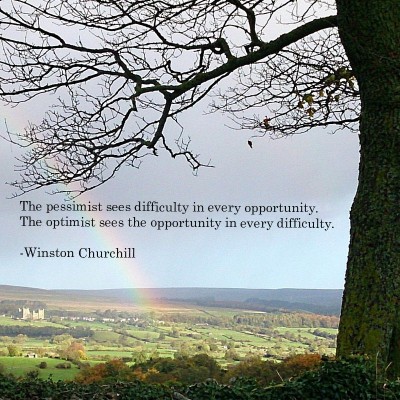The two opposing forces of being a pessimist or an optimist. The most positive thing you can do to begin your day on the right foot is to have a positive outlook on life. Your outlook toward life has a major impact on how the remainder of the day unfolds.
This post contains Amazon affiliate links, meaning I may earn a small commission if you purchase through my links, at no extra cost to you. Note: We aim to provide accurate product links, but some may occasionally expire or become unavailable. If this happens, please search directly on Amazon for the product or a suitable alternative.
If you wake up in the morning and say something pessimistic about yourself, such as, “Oh no, what is going to happen to me today, how can I survive in this crazy bad world today, I hope nothing bad happens to me today,” you are setting yourself up for failure. Then you’ll spend the whole day looking for bad stuff to happen to you, and the day will be a downer.
Your outlook on life has a significant impact. It determines your point of view, your understanding of the world, and how you interact with others. You will feel better about yourself if you think positively.
You will also attract good interactions to yourself. The inverse is also real. You will draw negative events into your life if you think negatively. As a result, you must be mindful of your emotions and learn how to think positively.
What is a Pessimist?
Judging by the adjectives often used to describe them, it is clear that pessimistic people are often seen as unpleasant to be around. They can often come off as grumpy, distrustful, and downright unfriendly, not to mention that they are often described as negative people.
But, does this mean that every single pessimistic person is like this? The simple answer is no.
While it’s true that pessimists tend to be gloomy and negative, believing life will always turn out badly, most pessimists are not necessarily depressed or unhappy.
In fact, pessimistic people often see themselves as realists who can see things as they really are, not as they wish they could be.
They tend to be skeptical, and can sometimes be cynics who question the motives of others.
What is an Optimist?
One of the most critical qualities you can have is optimism. It is an optimistic outlook on life that allows you to meet obstacles with the confidence that you will overcome them.
Positivity serves as a calming measure against stress and can be a valuable tool in both your personal and professional lives.
Optimism is a trait that you’re born with, or you learn the hard way. It has been proven that people who are optimistic can have a better life, are happier, and are more successful.
Highly optimistic people are happier and live longer. They are more successful at work, make more money, and are even physically healthier. Optimists are even better able to cope with stress and are less accident prone.
The effects of being a positive thinker vs being a negative thinker
When you get right down to it, it’s hard to argue against the idea that our minds have both positive and negative effects on our lives. On the one hand, a positive attitude might help you score a dream job, and negative self-talk may lead to a bad breakup, but are these things the result of thinking positively, or are they the result of thinking negatively?
Positive thinking has been a popular philosophy for decades, with positive thinkers such as Norman Vincent Peale and Harville Hendrix preaching that you can have anything you want out of life if you just think positively.
But are these positive thinkers really on to something? Or are they deluding themselves into thinking they can control their lives with the power of thought alone?
Why should you become an optimist
Everyone has heard the saying that, “You are what you eat.” This is definitely true when it comes to your mental health and ability to see the world in a positive way. The world is full of both positive and negative people; some of us naturally gravitate to the positive, while others are quick to focus on the negative.
If you want to improve your ability to see the positive in life, there are some good techniques and methods you can use.
Did you know that the optimist is happier, healthier, and more successful than the pessimist? Well, it’s true! While some people believe that optimists are always happy and carefree, the truth is that an optimist is someone who makes the most of a bad situation (by learning from it, for example).
Optimists are also resilient, and bounce back from setbacks quickly. Optimists are more likely to succeed in all areas of their lives (career, finances, relationships, health), and are happier overall.

The pessimist sees difficulty in every opportunity.
The optimist sees the opportunity in every difficulty.
-Winston Churchill








